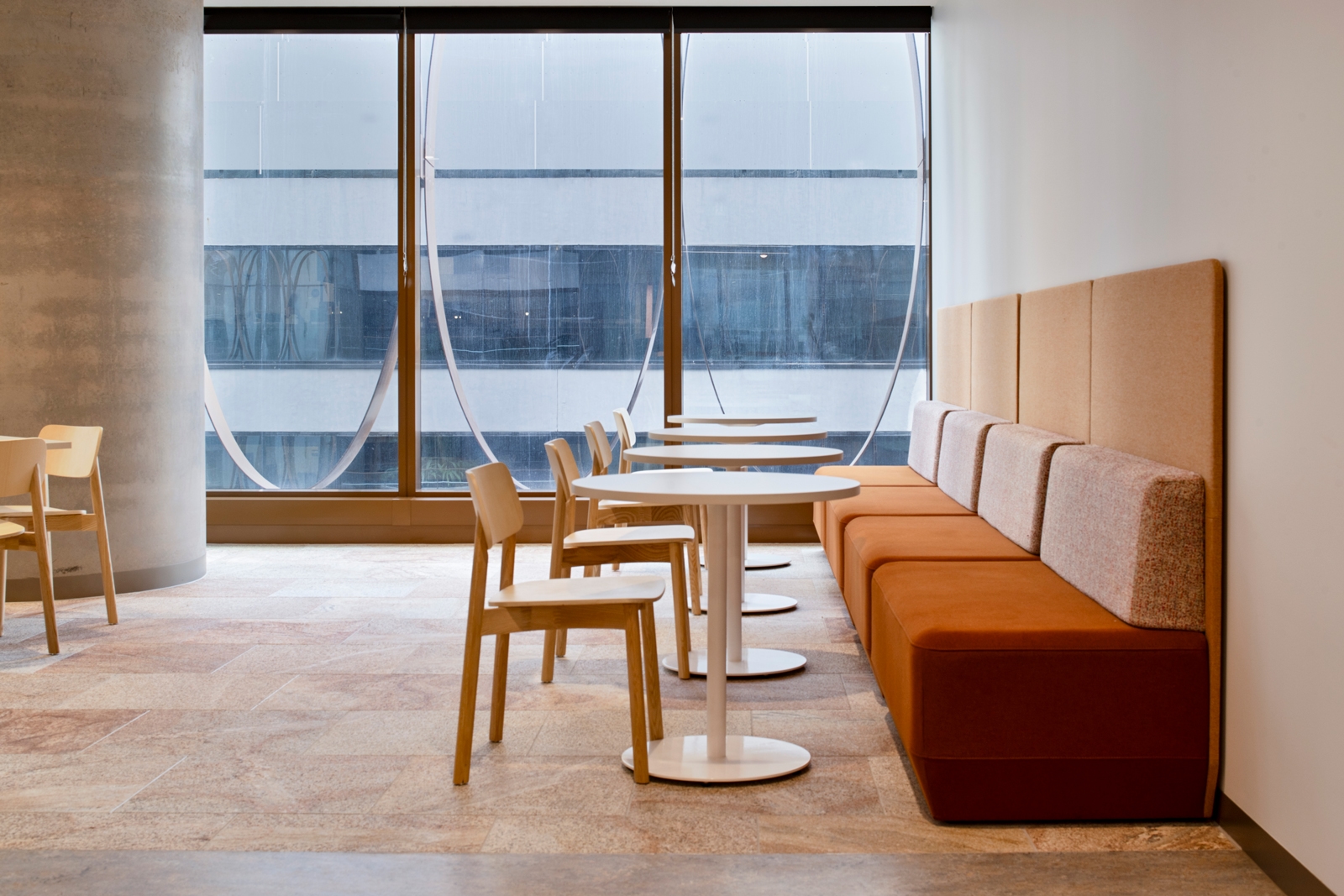

Overview
Cannon Hill Anglican College provides flexible education
In 1989, with just 79 students and three buildings, Cannon Hill Anglican College opened its doors. Now concluding its 30th year, the school has expanded significantly since those beginnings, currently home to around 1200 students from prep to year 12. The values that the school was built on – vision, innovation, courage, determination and a strong sense of community and compassion – have remained uncompromised and formed a school that is forward-thinking when it comes to education.

Pushing of the envelope
Moving away from “black and white” education spaces
This proverbial pushing of the envelope is seen in the College’s newly built enterprise learning and entrepreneurship building. Designed by PW Architecture, the space features enterprise labs and is used for extension learning programs, classroom-based education programs, collaborative work, project work and is also available for community use. The upper level – which includes a mezzanine – is an organic and versatile space for all secondary students – a place where they can study, hold meetings, complete group work, socialise or participate in classes.

“The College wanted something that reflected the workplace and what the students would be working within in the near future. It was to be sophisticated so they know what’s ahead of them, giving them the facilities in real life. This space was inspired partially by agile working design, because as with work spaces, education spaces aren’t black and white anymore,” says Brooke Asprey of PW Architecture.
Breakout spaces
Breaking out with Aire, Tangier and Blom
The multi-purpose space is open plan, bright and colourful, with furniture used to create hubs and zones for different kinds of working. To the south of the building are generous bay window seats. The area that borders these windows, both on the main floor and the mezzanine, is designed for private, quiet time, with Schiavello Tangier seating and circular Aire Tables supporting reflection and casual study.
The delicate lines and visual footprint of Aire offsets the bold and chunky Tangier, creating balance in the space, as well as an exciting alternative to traditional tables and chairs. Thanks to its light weight and versatile form, Tangier can also be picked up and moved about, giving students full control and flexibility over their environment.
Nearby, a Blom lounge setting simulates a breakout space in an office environment. Joyful and sculptural, the setting retains a casual and laid-back appeal, providing a place for the students to gather, chat and hold group discussions. The chairs’ matching low table creates a sophisticated, uniform aesthetic. With the chair and table’s polyethylene form upholstered in fabric, the pieces complement the textured, denim-weave-esque carpet.

Boardroom
Aire creates the students’ first boardroom experience
In the very centre of the main floor is an enclosed boardroom, something not often seen within student precincts, however an inclusion that the College saw as fundamental to the students’ growth and readiness for the outside world. Inside the boardroom is a 10-seat Aire Meeting Table. Creating a gentle transition for the students into work environments, this space could easily be mistaken for a professional office setting.

Autonomy and flexibility
With Toku, OTM and Karo
In the furthest corner of the floorplate is what is perhaps the most flexible area of the whole fitout. Populated by Schiavello’s Toku benches and ottomans, OTM tables and Karo stools, this zone is completely flexible and can be shifted and altered to cater to the students’ changing needs. “The fitout as a whole, but especially this area, gives the students the option to create what they need; they can change spaces to suit their tasks or mood,” says Asprey. “They aren’t limited to one location, and it’s a lot more playful.”
Toku creates a level of balance, empowering the students to choose the place they need for the task that they are undertaking. The lightweight nature of the Karo stools and OTM tables allows the students to easily manoeuvre the furniture. Using this space for social activities, group catch-ups or teaching sessions, students can also tuck away in their own space with the benches creating areas for privacy to focus.
Also in this zone is Kayt Nook, which provides the students with yet another choice of space. Responding to the necessity for noise reduction in open plan spaces, Kayt Nook helps to absorb disruptive sounds and visual movements in the surrounding environment, allowing the students to take time out for pre-exam study or quiet working.
Photography by Rix Ryan



















